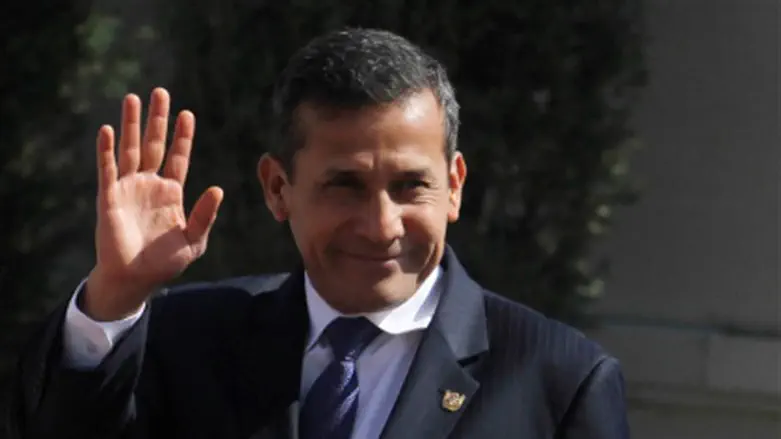
Peruvian police launched a manhunt Friday for ex-president Alejandro Toledo, once hailed as an anti-corruption champion, after a judge ordered his arrest over accusations he took $20 million in
bribes.
Authorities offered a $30,000 reward for information to help them capture Toledo, who rose from poverty to lead the fight against a graft-stained government in the 1990s, then served as Peru's first indigenous president from 2001 to 2006.
Toledo, 70, was initially believed to be in Paris. But the Peruvian government said Friday it now has information he is in San Francisco and could try to flee to Israel.
Authorities in both countries have been alerted, it said in a statement.
"US authorities have been asked to cooperate in detaining and deporting him," it said.
Toledo is a visiting professor at Stanford University, near San Francisco, where he graduated with a PhD in economics. His wife, Eliane Karp, has Israeli citizenship.
A judge ordered an international arrest warrant for Toledo Thursday, granting prosecutors' request to jail him for 18 months pending a full investigation.
The former president is accused of taking bribes from scandal-plagued Brazilian construction company Odebrecht to give the firm a juicy contract for a highway linking Brazil and Peru.
He denies the accusations, branding them political persecution.
But he has struggled to explain where the money came from.
He originally said it was a loan from his mother-in-law that came from compensation she received as a Holocaust survivor.
But his former vice president, David Waisman - himself a prominent member of Peru's Jewish community - said that was untrue.
"Lies just flow out of him," he said, adding a message for his former boss: "If it turns out you're guilty and you go to jail, then rot in there."
Toledo was once a hero to many Peruvians.
He came to office on a promise to clean up politics after a dirty decade under ex-president Alberto Fujimori, who is today in prison for corruption and human rights violations.
It was the culmination of a remarkable rise from a childhood of destitute poverty.
Toledo was born into a family of indigenous Quechua peasants in the Andes mountains.
The eighth of 16 children, he went to work as a shepherd at a young age. He was still a child when he left home for the port city of Chimbote, where he hawked newspapers and worked as a shoeshine boy.
He excelled in public school and won a scholarship to study in the United States, attending the University of San Francisco then earning his doctorate at Stanford.
But even as he rose through the ranks of the Inter-American Development Bank and World Bank, he often joked he had a "PhD in extreme poverty."
Since losing his 2006 re-election bid, he had become something of an elder statesman, lecturing at prominent universities and founding the Global Center for Development and Democracy.
As recently as last month, he was rubbing elbows with fellow policy pundits at a conference of the Organisation for Economic Cooperation and Development - the reason for his trip to Paris.
The accusations against Toledo emerged from the giant scandal in Brazil involving the state oil company there, Petrobras.
In a probe whose fallout is now being felt around Latin America, Brazilian prosecutors discovered Petrobras was bilked for billions of dollars over the course of a decade by corrupt executives, politicians and contractors.
Those contractors included Odebrecht, which turned out to have a secret bribery department that had been paying off politicians throughout Latin America for years.
Among the tell-all plea bargains to come out of the Brazilian investigation was one from Odebrecht's former boss in Peru, Jorge Barata, who said the company paid Toledo $20 million via an intermediary.
Peruvian ex-presidents Alan Garcia (2006-2011) and Ollanta Humala (2011-2016) are also caught up in the scandal.
Investigators say Odebrecht paid a total of $29 million in bribes in Peru from 2005 to 2014.